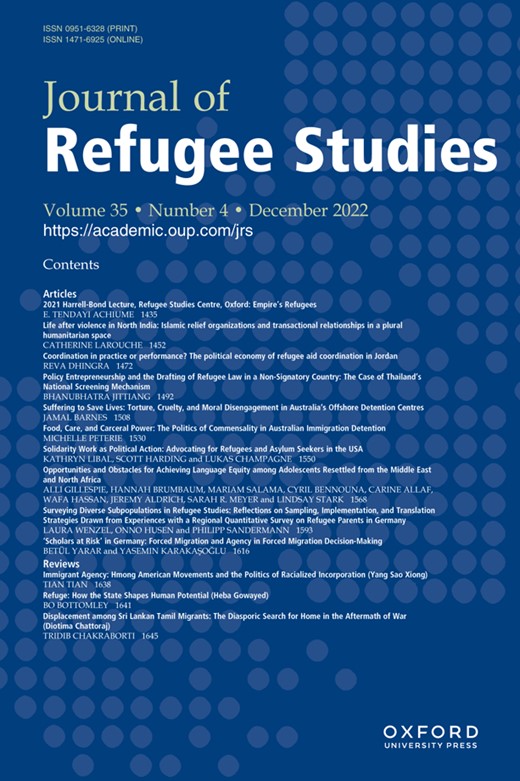-
Views
-
Cite
Cite
Catherine Larouche, Life after violence in North India: Islamic relief organizations and transactional relationships in a plural humanitarian space, Journal of Refugee Studies, Volume 35, Issue 4, December 2022, Pages 1452–1471, https://doi.org/10.1093/jrs/feab097
Close - Share Icon Share
Abstract
Religious humanitarianism is often closely scrutinized, as it is either viewed as exerting a positive influence in post-conflict contexts—through peace-building and sense-making—or a negative one—through proselytism and division. This article contends that both these (negative and positive) perspectives on the role played by religious organizations overemphasize, to a certain extent, their transformative power in post-conflict contexts, at least in the short term. Based on ethnographic fieldwork with both Islamic and non-confessional humanitarian organizations supporting internally displaced people—victims of anti-Muslim violence in Muzaffarnagar, India—I suggest that the inherent plurality and competitive dimension of the humanitarian field leads to a form of transactional relationship between displaced people and organizations and tends to reduce the importance of ideological differences between organizations. Paying attention to this particularity of the humanitarian field and how displaced people deal with it can provide us with a better understanding of the actual influence of religious humanitarianism in post-conflict contexts.


